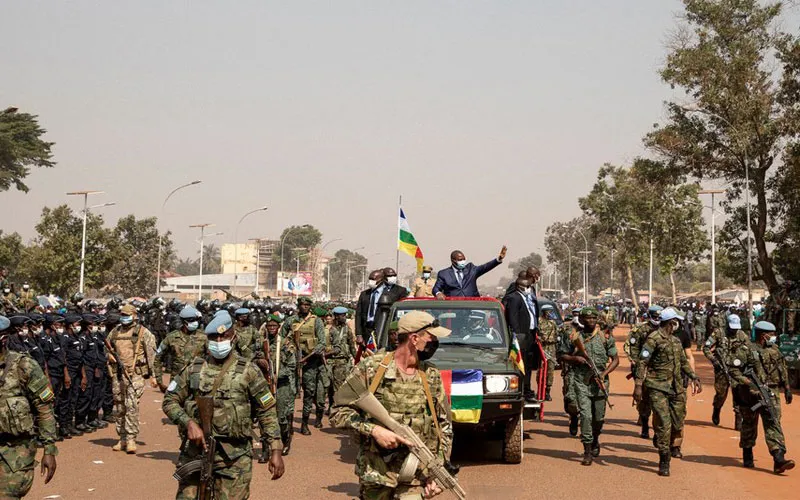Bangui, 13 January, 2021 / 6:57 pm (ACI Africa).
The rising insecurity in the Central African Republic (CAR) has prevented three Bishops from their colleagues for the first annual Plenary Assembly taking place in the country’s capital, Bangui, a source in the country has told ACI Africa.
Bishops Juan-José Aguirre Muñoz of the Diocese of Bangassou, Mirosław Gucwa of CAR’s Bouar Diocese, and Guerrino Perin of Mbaiki Diocese have been unable to attend the January 9-18 plenary session due to “threat on the population because of presence of rebels,” a source told ACI Africa Wednesday, January 13.
“Today, the Bishops could not have their meeting because of attacks on Bangui,” the source further said, making reference to attacks of CAR’s capital by rebel forces.
On January 13, rebel forces in CAR launched two attacks on the outskirts of the capital Bangui that were pushed back, Aljazeera News reported.
The simultaneous dawn assaults nine and 12 km from the capital, which targeted two army brigades were the first close to the capital since President Faustin Archange Touadera was re-elected in a December 27 ballot.








